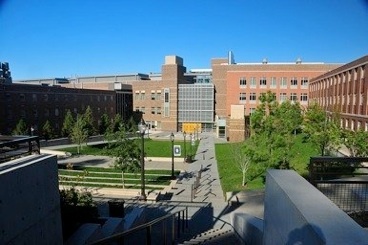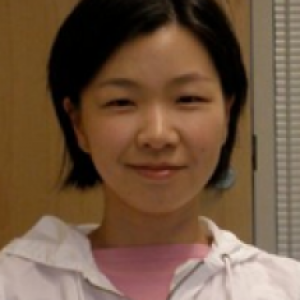Volkan Lab
We study the developmental processes that establish the basic organizational and functional principles of the neuronal circuits in the brain. We investigate how the neuronal circuits assemble, functionally mature, and remodel along developmental and evolutionary time scales. We apply molecular, developmental and systems level approaches in the olfactory system of the genetically tractable Drosophila melanogaster.
The long term goal of the lab is to understand molecular mechanisms governing sensory neural circuit assembly and how circuit morphology regulates behavioral outputs to sensory stimuli. We use the Drosophila olfactory system to elucidate these mechanisms.
We thank the Whitehall Foundation and the National Science Foundation (NSF) for supporting our research.
Volkan Research
ASSEMBLY OF OLFACTORY CIRCUITRY IN DROSOPHILA
How we interpret and behaviorally respond to the external world depends on our sensory systems and the organization of their underlying circuits in the brain. Coordinated expression of distinct sensory receptors in specific neurons with their connectivity to specific target sites in the central nervous system underlies the general logic of sensory circuit assembly. Despite this stereotypical organization of sensory circuits at the periphery, circuit morphology must also be modified to accommodate behavioral adaptation to the changing chemical environments during evolution. We are interested in the molecular mechanisms regulating circuit assembly, the relationship of circuit morphology to executed behaviors and how circuits are reassembled during modification of species-specific behaviors.
To gain insight into this issue we study the olfactory receptor neurons in the fruit fly, Drosophila melanogaster, where such coordination is utilized to organize the circuitry regulating olfactory behaviors to a wide variety of odorants. The adult olfactory system consists of approximately 1300 olfactory receptor neurons (ORNs), each of which expresses one out of approximately 60 odorant receptors encoded in the Drosophila genome. ORNs are found in two sensory structures in the fly head, the antenna and the maxillary palps (MP), and all make connections with specific target neurons in the antennal lobe (AL) in the fly brain, a structure analogous to the mammalian olfactory bulb. Similar to the mammalian system, each class of adult ORNs sends projections to the AL to form synapses in the same synaptic structure, called a glomerulus. Each glomerulus occupies a stereotyped position within the AL. Different classes of ORNs make connections in distinct and non-overlapping glomeruli. In stark contrast to the mouse olfactory system, odorant receptors do not play a role in regulating targeting specificity in the fly olfactory system. The mechanisms specifying a single target site for neurons expressing the same receptor remains unclear.
Molecular Regulators of CO2 sensory circuitry organization and evolution in insects
Epigenetic regulation of odorant receptor choice in the pheromone circuits
Volkan Publications
Volkan, Pelin C., Bryson Deanhardt, Songhui Zhao, Chengcheng Du, Aishani Saha, Charles Soeder, and Corbin Jones. “Chromatin Based Reprogramming of fru and dsx in Courtship Circuits with Social Experience and Pheromone Signaling.” In Chemical Senses, Vol. 46, 2021.
Volkan, Pelin C., Bryson Deanhardt, Songhui Zhao, Chengcheng Du, Aishani Saha, Charles Soeder, and Corbin Jones. “Chromatin Based Reprogramming of fru and dsx in Courtship Circuits with Social Experience and Pheromone Signaling.” In Chemical Senses, Vol. 46, 2021.
Duan, Qichen, and Pelin Cayirlioglu Volkan. “Ant Olfaction: Smells Like an Insect, Develops Like a Mammal.” Current Biology : Cb 30, no. 16 (August 2020): R950–52. https://doi.org/10.1016/j.cub.2020.06.074.
Zhao, Songhui, Bryson Deanhardt, George Thomas Barlow, Paulina Guerra Schleske, Anthony M. Rossi, and Pelin C. Volkan. “Chromatin-based reprogramming of a courtship regulator by concurrent pheromone perception and hormone signaling.” Science Advances 6, no. 21 (May 22, 2020): eaba6913. https://doi.org/10.1126/sciadv.aba6913.
Sethi, Sachin, Hui-Hao Lin, Andrew K. Shepherd, Pelin C. Volkan, Chih-Ying Su, and Jing W. Wang. “Social Context Enhances Hormonal Modulation of Pheromone Detection in Drosophila.” Current Biology : Cb 29, no. 22 (November 2019): 3887-3898.e4. https://doi.org/10.1016/j.cub.2019.09.045.
Duan, Qichen, Yetong Huang, Scott Barish, and Pelin C. Volkan. “Interacting Ig Superfamily Proteins Organize Axon Terminals of Olfactory Receptor Neurons Regulated by Olfactory Receptors in Drosophila.” In Chemical Senses, 44:E68–E68. OXFORD UNIV PRESS, 2019.
Barish, Scott, Sarah Nuss, Ilya Strunilin, Suyang Bao, Sayan Mukherjee, Corbin D. Jones, and Pelin C. Volkan. “Combinations of DIPs and Dprs control organization of olfactory receptor neuron terminals in Drosophila.” Plos Genetics 14, no. 8 (August 13, 2018): e1007560. https://doi.org/10.1371/journal.pgen.1007560.
Barish, Scott, and Pelin C. Volkan. “Preparing Developing Peripheral Olfactory Tissue for Molecular and Immunohistochemical Analysis in Drosophila.” Journal of Visualized Experiments : Jove, no. 136 (June 13, 2018). https://doi.org/10.3791/57716.
Pan, Jia Wern, Joi McLaughlin, Haining Yang, Charles Leo, Paula Rambarat, Sumie Okuwa, Anaïs Monroy-Eklund, Sabrina Clark, Corbin D. Jones, and Pelin Cayirlioglu Volkan. “Comparative analysis of behavioral and transcriptional variation underlying CO2 sensory neuron function and development in Drosophila.” Fly 11, no. 4 (October 2017): 239–52. https://doi.org/10.1080/19336934.2017.1344374.
Pan, Jia Wern, Qingyun Li, Scott Barish, Sumie Okuwa, Songhui Zhao, Charles Soeder, Matthew Kanke, Corbin D. Jones, and Pelin Cayirlioglu Volkan. “Patterns of transcriptional parallelism and variation in the developing olfactory system of Drosophila species.” Scientific Reports 7, no. 1 (August 18, 2017): 8804. https://doi.org/10.1038/s41598-017-08563-0.
Lab Members
Alumni
Contact/Join Volkan Lab

Contact
Phone: (919) 684-1682
FFSC 4305, Box 90338
124 Science Dr.
Durham, NC 27708
Open Positions
Graduate Students
We are not recruiting any graduate students currently.
Post-doctoral Research Position
We are not seeking any post-doctoral researchers currently.

